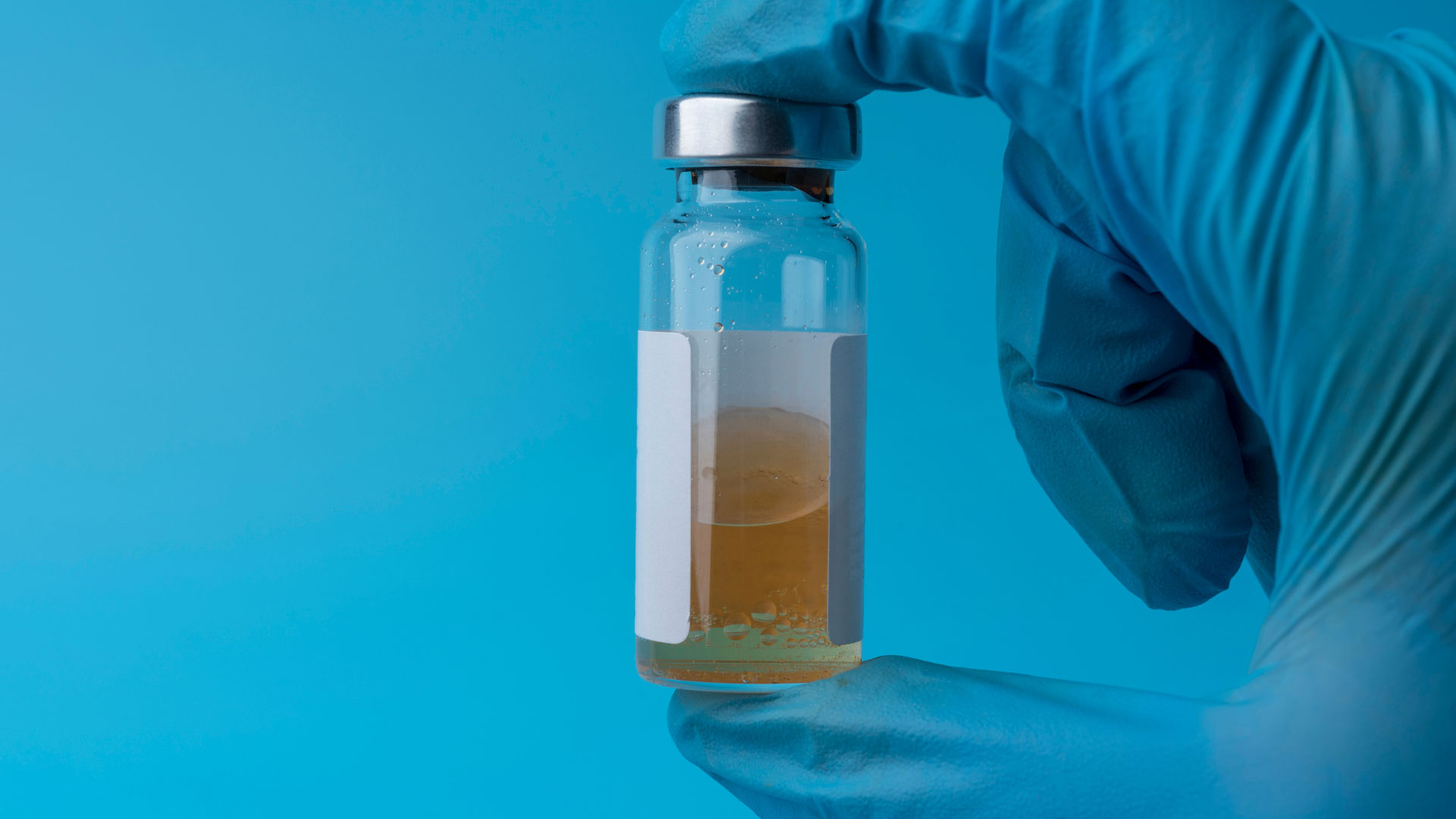LSD is a first-rate elimination drug that disappears from your brain in 20 minutes. While the drug disappears from your brain in 20 minutes, its effects can be experienced for... The post How Long Does LSD Stay In Your...
LSD is a first-rate elimination drug that disappears from your brain in 20 minutes.
While the drug disappears from your brain in 20 minutes, its effects can be experienced for many hours.[1] These effects can include both intended effects, such as hallucinations, and adverse effects, such as anxiety, depression, despair, fear, panic, and disappointment.[2]
While the potential for physical dependency is low, the potential for psychological dependency is higher. While it is unlikely, there have been recorded overdoses of LSD.
Ingesting LSD is alternatively known as “tripping” or “dropping acid”.
What Is LSD?
LSD (aka “acid”) is a synthetic compound first synthesized by Albert Hofmann in 1943.
He was trying to create a circulatory stimulant from an ergot fungus (Claviceps Purpurea) that grows on the heads of cereal grains such as wheat and rye. When he accidentally ingested some of a compound he called LSD-25, he had a mild euphoric reaction.
The next day he decided to deliberately self-experiment, and dissolved 250 millionths of a gram of LSD-25 in water. He became the first person in history to “trip” on acid.
Over the next 20 years, LSD experimentation became enmeshed with the psychedelic counter-cultural activity of the 1960s due to its nature as an experiential drug that collapses time and space into a reality-bending, distortion “trip.” Alduous Huxley, a famous counter-cultural writer of the 1950s, was an early proponent of non-clinical LSD use.
He actually requested an acid trip on his deathbed.
LSD users report a synesthesia experience, where your brain routes sensory information through unrelated senses, causing you to experience these sensations simultaneously (e.g., tasting color, seeing sounds, etc). While the drug is relatively quickly eliminated from your brain, its effects can be felt for several hours.
How Does LSD Work?
Due to the stigma of existing as a Schedule I drug, our understanding of the exact mechanism of action for how LSD impairs cognition and induces hallucinations is incomplete.
LSD acts on serotonin receptors in your brain. Serotonin is a mood balancer neurotransmitter that is responsible for the sensation of feeling confident, cheery, calm, and focused. By unleashing a flood of serotonin, LSD works similarly to medication SSRIs (which prevent your neurons from reabsorbing serotonin in the synapses).
Acid might impair inhibitory processes in the hippocampal prefrontal cortex.[3] Specifically, LSD reduces brain activity in both the left and right-hand sides of your brain, which could be responsible for cognition impairment.
How Long Does Acid Stay in Your System?
The elimination half-life for LSD in your whole body is 2.6 hours.[4] Even though it exits your brain in 20 minutes, it takes 2.6 hours to be reduced by 50% in your body. Since it takes 4-5 elimination half-lives to fully eliminate a substance from your body, it takes anywhere from 10.4 to 13.0 hours for LSD to be fully eliminated from your body.
There is some evidence that LSD can induce neuroplasticity in the brain, which suggests a basis for using acid to instigate persistent behavioral changes.[5]
How Long Do the Effects of LSD Last for Adults?
LSD is available in various forms, including blotter paper (saturated absorbent paper), liquid (which can be used for injection), and less commonly in tablet or capsule form.
While experts suggest the non-toxic LSD dose is 50-200 micrograms, more recent studies used 75 micrograms of LSD injected intravenously.[6] Reported subjective effects began within 5 to 15 minutes, and effects peaked 45 to 90 minutes after intravenous dosing.
You could feel the effects of LSD in your system for several hours.
What Could Alter the Timeline of LSD in Your System?
Several factors could impact the length of acid that is detectable in your system.
Typically, LSD is not detectable on a routine drug test.[7] Other factors that could impact detection windows include your weight, height, age, frequency of dosing, the potency of the last dose, genetics, and environment.
Other important factors include how finely calibrated the immunoassay instrument is used, the detection window threshold, and the specific kind of biological sample obtained (e.g., urine, hair, sweat, and blood).
Does LSD Show Up on a Drug Test?
 Most routine drug tests (like urine tests, hair tests, etc.) do not test for LSD. When ingested, your body metabolizes LSD into metabolites. Small amounts of LSD and acid’s metabolite 2-oxy-lysergic acid diethylamide are secreted unchanged in the urine.[8] These are what can be tested for via drug tests.
Most routine drug tests (like urine tests, hair tests, etc.) do not test for LSD. When ingested, your body metabolizes LSD into metabolites. Small amounts of LSD and acid’s metabolite 2-oxy-lysergic acid diethylamide are secreted unchanged in the urine.[8] These are what can be tested for via drug tests.
But LSD and its metabolite only take 10.4-13.0 hours to be statistically eliminated from your system. And most drug tests are not sensitive enough to test for acid.
Is Acid Addictive?
LSD has a low level of possibility for physical dependency but a higher level of psychological dependency, resulting in a serious concern for mental health.
Good “trips” can be euphoric, enriching, and non-threatening. LSD drug use can lead one to become dependent on the release of serotonin and hallucinations LSD provides. Once they are dependent on the substance, they have developed an addiction to it.
While LSD primarily acts on serotonin receptors and has a low potential for physical dependency, its interaction with dopamine receptors is not the sole determinant of its addiction potential. However, it is possible to overdose on LSD.
Intended Side Effects of LSD
Many people use LSD to experience audiovisual hallucinations. Along with the sensory experience, the release of serotonin creates a flood of trust, openness, and happiness.
During the 1960s, LSD was used to treat alcoholism by compressing years of painstaking self-reflection in psychotherapy into a single, intense, experiential session.[9] However, these were not standard or universally accepted treatments. Trauma and schizophrenia were also suggested as possible clinical trials.
Generally, in low doses, people have a very positive experience of LSD. Sometimes, the symptoms of an anxiety disorder will present itself.
Adverse Side Effects of LSD
There are many adverse side effects of acid.[10] Some are:
A distorted experience of time and identity A sense of being uncoordinated A distorted perception of objects, movements, colors, sounds, touch, and the user’s body image (depersonalization) Unbearably terrifying thoughts Fear of losing control Fear of sudden death Panic attacksOverdosing on acid is difficult but possible. While 50-200 micrograms are considered non-toxic and medically safe, a research study from 1973 estimates the fatal dose of LSD to be 14,000 micrograms.[11]
While there have been some deaths associated with LSD, there are almost always other compounding factors. These factors can range from the presence of other substances to the types of restraint the authorities use.
Health Risks of Long-Term Acid Use
Using acid puts you in physical danger.
While you are having hallucinations, you will not be able to respond to external environmental stimuli like usual. If you are involved in a high-risk activity like driving or are located on a rooftop location while using LSD, a “bad trip” could be dangerous because your reaction times will be stymied.
The other greatest risk of long-term LSD use is tolerance.[12]
The more you use it, the more your body will require a greater and greater amount of the drug to achieve the same effect. And the more of the substance you use, the greater the potential for adverse side effects.
Finding Help
Lifelong sobriety is a worthy and achievable goal. If you are addicted to LSD, seek treatment immediately.
There are many licensed treatment centers near you that know how to handle your addiction. They can craft an individualized treatment plan that empowers you to take control of your life back from your LSD addiction.
Ask your doctor if they have a referral relationship with nearby treatment centers, or search for information online such as reviews.
The post How Long Does LSD Stay In Your System? Timelines, Drug Tests, and Treatment appeared first on Ocean Recovery.












